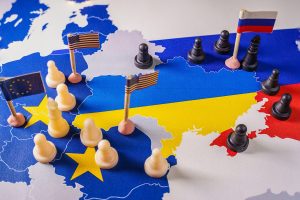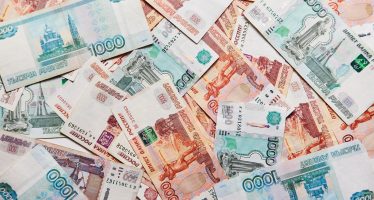The Fog of War: The Tragic Triumph of Hope Over Experience – The Folly of Great Powers
 Wars of conquest seldom end well for the would-be conqueror even if waged against a weaker neighbour. Somehow, those to be subjugated always seem to find unity in a resolve to spoil the plans and designs of the aggressor. Their plight is not dissimilar from the one that motivated colonised people to take on the world’s largest empires – and eject them from their native land.
Wars of conquest seldom end well for the would-be conqueror even if waged against a weaker neighbour. Somehow, those to be subjugated always seem to find unity in a resolve to spoil the plans and designs of the aggressor. Their plight is not dissimilar from the one that motivated colonised people to take on the world’s largest empires – and eject them from their native land.
The world wonders what President Vladimir Putin was thinking when he ordered his army south to reclaim Ukraine for Russia. Surely such an experienced and skilful political operator – and accomplished chess player – must have realised the utter folly of the move.
Even if Russian armour could have crushed the opposition in a matter of days, as was apparently planned, occupying a sizeable country with some 44 million uncooperative inhabitants would demand resources far beyond those available to most, if not all, great powers, including Russia.
Was President Putin suffering from megalomania or did he feel particularly lucky, expecting some grumbling and a slap on the wrist from the West before resuming business as usual? Whatever his considerations, President Putin seems to have miscalculated the consequences – both military and political of the assault.
NATO unity held firm and was strengthened by the imminent accession of Sweden and Finland. Both countries submitted their formal request for admittance earlier today. If the idea was to create a buffer between Russia and NATO, that turned out not as anticipated with the alliance more than doubling the length of its border with the country.
Trapped
President Putin blundered into the same trap that proved fatal to Napoleon and Hitler: an army may secure a succession of battlefield victories, but winning the subsequent peace is less straightforward. Embarking on a campaign of conquest is the easy bit: what to do with the spoils not so much. It’s a question not often asked by adventurous warlords who tend to focus on entry – not exit – strategy.
The problem for President Putin is, of course, that he proved unable to successfully finish the easy bit of his ‘military-technical operation’. Worse, Finland and Sweden merely shrugged off Russia’s explicit threats of another such operation in reprisal for their slide into the arms of the enemy alliance. The non-verbalized but clearly signalled message from Helsinki and Stockholm to President Putin: You and whose army?
Before succumbing to the temptation to gleefully elaborate on the apparent clumsiness and incompetence of the Russian military, it must be remembered that the United States also suffered rather humiliating defeats and setbacks whilst waging ‘small wars’ such as those it fought in Vietnam, Afghanistan, Somalia, Lebanon, and to a lesser degree Iraq. It was, however, quite successful against Grenada (1983) and Panama (1989).
There is a difference, and it is rather crucial: since the Mexican-American War of 1846-48, the United States has not fought a war of conquest. Americans usually win their wars rather easily but often lose the peace that follows.
Historian Alan Tooze concludes that since 1914 no war of aggression seems to have yielded a positive outcome for the ‘first mover’. Russia’s leadership ought to have known, from historical experience, that soldiers generally fight much fiercer whilst defending their home turf. By contrast, invading soldiers often fail to understand or appreciate the aims of the war they are ordered to fight and may not be sufficiently primed to keep shooting straight.
The (formerly) formidable reputation of the Russian army was built on its defensive wars against French and German invaders. It fared badly in Afghanistan which may be a failed state by any measure but continues to reaffirm its reputation as the graveyard of empires.
Not Stalin
Much as he tries, President Putin is unable to equate his plucky Ukrainian counterpart as a modern-day Hitler. The suggestion is simply too preposterous. President Putin is also not Stalin who, after a bit of initial sputtering, rallied and inspired the nation – and forged it into an unstoppable fighting machine. Now, the role of heroic defenders of the fatherland is reserved for Ukrainian soldiers.
Writing in the Indian Express, the enfant terrible of Indian academics Prof Pratap Bhanu Mehta wondered how it is that powerful countries still think they can win asymmetric wars despite their “terrible record.”
The only exception to the rule seems to be wars with a well-defined objective such as the First Gulf War (1991) to liberate Kuwait when then-US President George HW Bush wisely stopped his army from advancing deep into Iraq. Twelve years later, his son George W Bush, the 43rd US president, was less cautious and waded into what soon became a quagmire.
The Revenge of the Underdog
The latest military technology may also favour the underdog. High-precision portable missiles have been very effective against armour as have small kamikaze drones that hover over the battlefield until a suitable target is found and destroyed.
Fighting in small mobile groups as opposed to massed forces, the Ukrainian military is not only nimble and hard to catch, but also tightly integrated with excellent communication between units. Now equipped with heavy artillery and armour from Western backers, and a constant flow of real-time intelligence, the Ukrainian army can begin to strategize a way to eject the invader.
Without a ladder to climb down, President Putin faces an unmitigated disaster should his forces be pushed back to the pre-2014 border. Not only would he have much explaining to do to a public fooled into believing this was a just, short, and glorious war; he would also rule over a country crippled and impoverished by sanctions and banned from, and ridiculed on, the global stage. It is hard to see how President Putin – or, indeed, Russia as a great power – can survive such a scenario.
Referring to the demise of Britain as a world power after the country emerged victorious from World War II, popular historian AJP Taylor (1906-1990) illustrated the paradox facing all great powers: “Though the object of a great power is to be able to fight a great war, the only way of remaining a great power is not to fight one.”
That lesson is not lost on the world’s newest great power. After suffering defeat in Vietnam – yet another graveyard of empires – in 1979, China has been reluctant to flex its military muscle.
Though its armed forces have been significantly modernised and expanded – and constant rumblings of war can be heard in Beijing – the Chinese leadership seems to recognise, now more than ever before, that military adventurism is risky by definition. When the shooting starts, the first victim is not the truth, but the plan.
You may have an interest in also reading…
Fortress Russia on Shaky Ground: EU Finds Its Footing and Unleashes Its Economic Might
The rouble took a pounding of note, losing almost a third of its value as soon as forex markets opened
Is it Time to Put AI in Charge of Pricing Strategies? Most Firms Seem Hesitant to Take the Leap
Despite corporates enthusiasm for AI, its use in pricing strategies — using algorithms to determine optimal prices for goods and
Why are US Conservatives Against Investment in ESG?
Republicans balking at ‘woke liberal agenda’ that they claim could erode profit margins and threaten livelihoods US politicians are treating
















































































